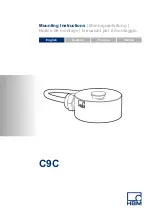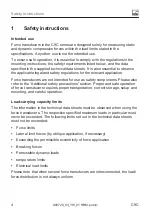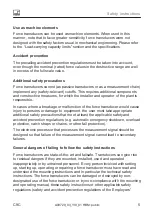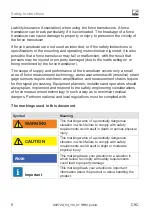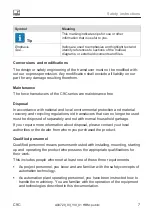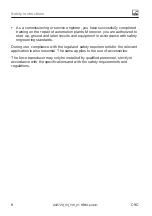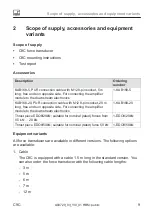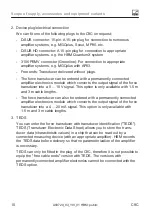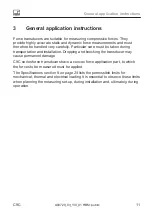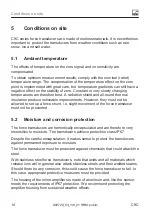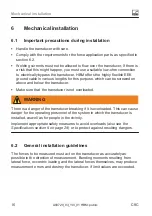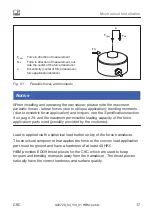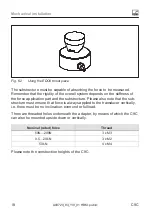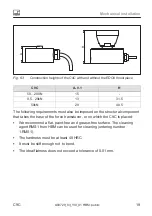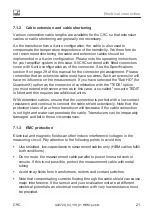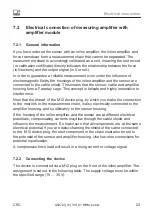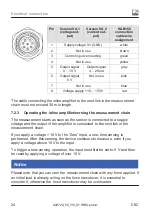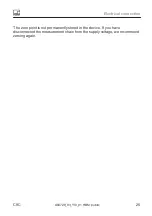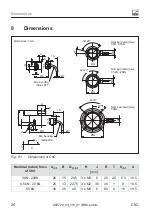
Conditions on site
14
A03729_03_YI0_01
HBM: public
C9C
5
Conditions on site
C9C series force transducers are made of rustless materials. It is nevertheless
important to protect the transducers from weather conditions such as rain,
snow, ice and salt water.
5.1
Ambient temperature
The effects of temperature on the zero signal and on sensitivity are
compensated
.
To obtain optimum measurement results, comply with the nominal (rated)
temperature range. The compensation of the temperature effect on the zero
point is implemented with great care, but temperature gradients can still have a
negative effect on the stability of zero. Constant or very slowly changing
temperatures are therefore best. A radiation shield and all-round thermal
insulation produce noticeable improvements. However, they must not be
allowed to set up a force shunt, i.e. slight movement of the force transducer
must not be prevented.
5.2
Moisture and corrosion protection
The force transducers are hermetically encapsulated and are therefore very
insensitive to moisture. The transducers achieve protection class IP67
.
Despite the careful encapsulation, it makes sense to protect the transducers
against permanent exposure to moisture.
The force transducer must be protected against chemicals that could attack the
steel.
With stainless steel force transducers, note that acids and all materials which
release ions will in general also attack stainless steels and their welded seams.
Should there be any corrosion, this could cause the force transducer to fail. In
this case, appropriate protective measures must be provided.
The housing of the inline amplifiers is made of aluminum and, like the sensor,
meets the requirements of IP67 protection. We recommend protecting the
amplifier housing from sustained weather effects.


